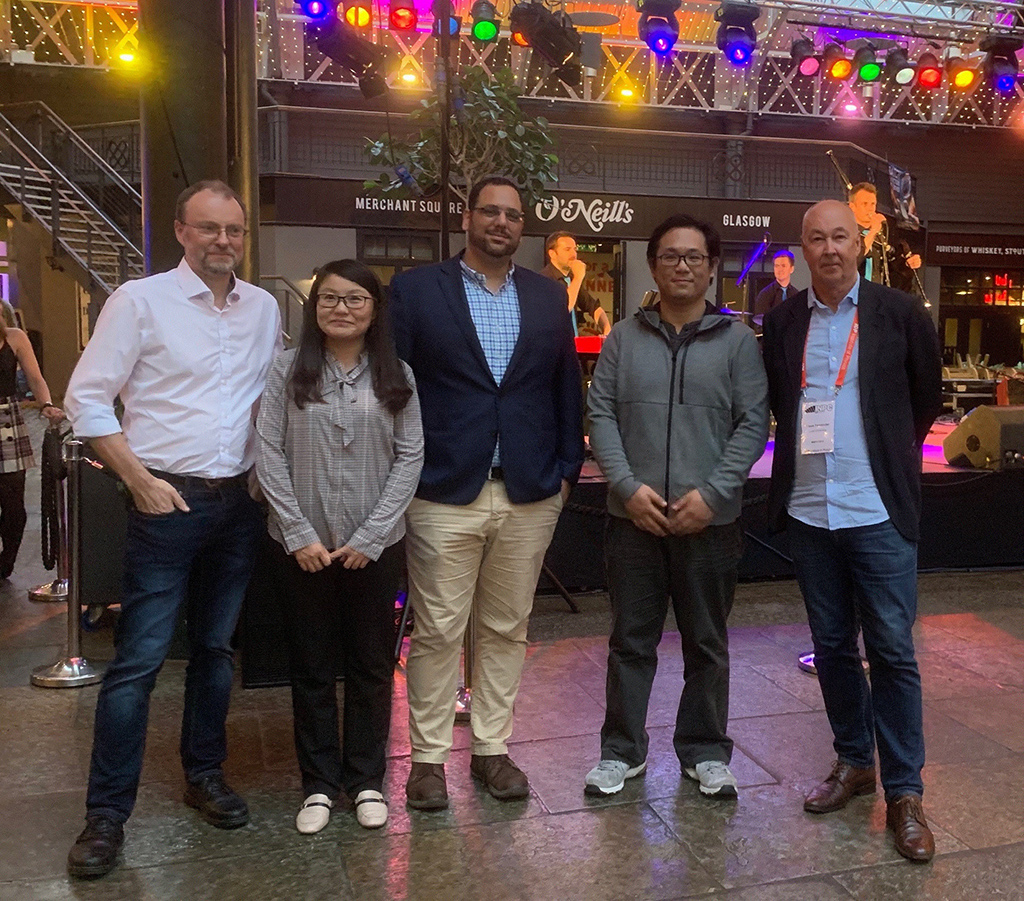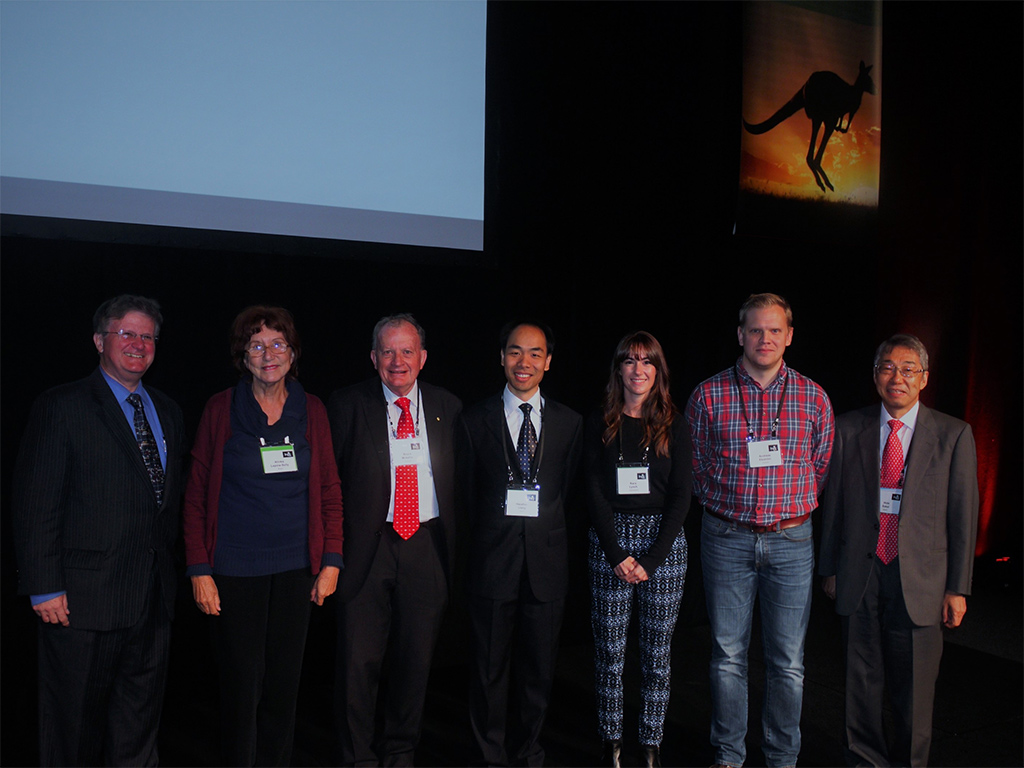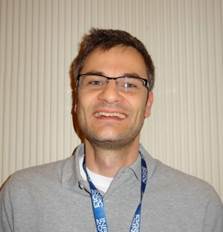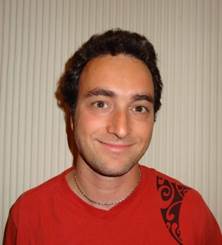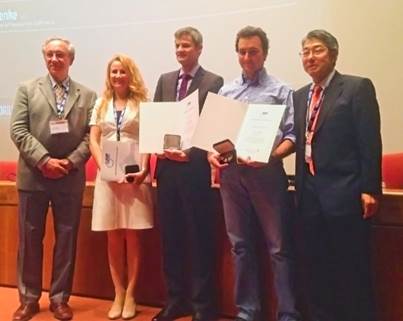
Leendert Hayen
Leendert Haydn received his award ”for his relevant and innovative contributions for precision measurements in nuclear beta decay to search for new physics beyond the Standard model”.
Leendert Hayen studied physics at KU Leuven, Belgium, and ETH Zurich in Switzerland, and in 2018 obtained his PhD at KU Leuven. He then continued as a postdoctoral scholar and research assistant professor at North Carolina State University and Triangle Universities Nuclear Laboratory. In 2023, Leendert was awarded the presitigious Chaired Junior Professor position at the French National Centre for Scientific Research as a part of the first excellence chair cohort, and he joined the Laboratoire de Physique Corpusculaire de Caen in Normandy.
Leendert’s work spans both theoretical and experimental aspects of nuclear and particle physics, with a focus on nuclear beta decays in short-lived radioactive atoms. Currently, he is pursuing novel types of superconducting detectors to open new measurement channels at radioactive ion beam facilities. These form a unique laboratory for searches of physics beyond the Standard Model of particle physics, the nature of neutrinos and nuclear phenomena up to the quantum chemistry scale.
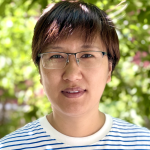
Hongna Liu
The prize was awarded to Hongna Liu for “her innovative studies of exotic nuclei using in-beam gamma spectroscopy with fast radioactive isotope beams, including the development of a novel target and recoil-particle detection system.”
Dr. Hongna Liu began her nuclear physics study at Lanzhou University, China as a bachelor student, and earned her Ph.D. degree at Peking University in 2017. During her Ph.D. study, she worked at RIKEN Nishina Center, Japan, from 2011 to 2014 as an International Program Associate, focusing on in-beam gamma spectroscopy of exotic and stable nuclei using heavy-ion induced knockout reactions. After her Ph.D., she worked briefly in KTH, Sweden and, in 2017, received the Enhanced Eurotalents Fellowship to work as a postdoctoral researcher at CEA Saclay, France. There, she was devoted to studying the shell evolution of extremely neutron-rich nuclei using a liquid hydrogen target and a TPC proton tracker. In 2018, she moved to IKP, TU Darmstadt, Germany, and became a Junior Leader in 2019 in the SFB1245 project, leading the development of the STRASSE setup. This setup consists of a liquid hydrogen target and a silicon tracker, enabling the particle and in-beam gamma spectroscopy of radioactive nuclei with beams down to a few particles per second. Since 2022, Dr. Hongna Liu has been a faculty member at Beijing Normal University, China, and has served on the SAMURAI Steering Board since 2023. Her main research interests are the development of the multi-platform liquid hydrogen target combined with the high-efficiency, high-resolution charged particle tracker and their applications in studying exotic features of radioactive isotopes based on direct reactions.
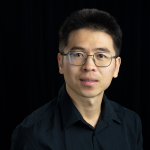
Baishan Hu
Baishan Hu received his prize “for pioneering ab initio nuclear theories that extend precision calculations to heavy and strongly deformed nuclei—advancing our understanding of nuclear structure, dense nuclear matter, and physics beyond the Standard Model.”
Baishan Hu obtained his Ph.D. degree in nuclear physics from Peking University, China, in 2017. His doctoral research focused on ab initio calculations of nuclear structure. After completing his Ph.D., he continued his research as a post-doc at Peking University. In 2019, he joined the theory group at TRIUMF, Canada, as a postdoctoral fellow. After three years, he moved Oak Ridge National Laboratory, USA, for another postdoctoral position. Since 2024, he has been a research assistant professor at Texas A&M University, College Station, USA.
Baishan’s research activities are focused on ab initio calculations of nuclei, with an emphasis on extending the capabilities of ab initio studies in two directions: 1). advancing ab initio calculations into the heavier mass regions, and 2). providing first-principles predictions for quantities that are difficult or even impossible to evaluate experimentally. These quantities are particularly relevant to astrophysics and searches for physics beyond the Standard Model.
The IUPAP C12 Commission on Nuclear Physics received 26 nominations for the IUPAP Young Scientist Prize in Nuclear Physics 2022. After a thorough evaluation, the C12 members selected Carlo Bruno (University of Edinburgh), Ronald Fernando Garcia Ruiz (MIT), and Volodymyr Vovchenko (INT Washington).
Following the established tradition, the prize was awarded at the main conference of the field, the International Nuclear Physics Conference (INPC 2022), held in Cape Town, South Africa, during the conference dinner on 15 September 2022.
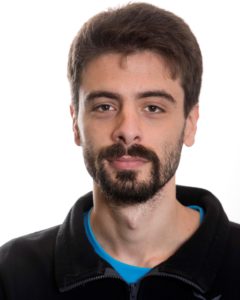
Carlo Bruno
“For his experimental work with low-energy nuclear reactions relevant for astrophysics and his leading role in transferring these experiments into storage rings using radioactive beams.”
Carlo Bruno studied at Università Statale di Milano and obtained his Ph.D. at the University of Edinburgh, supported by a highly competitive fellowship of the Scottish Universities Physics Alliance, at the LUNA facility located in the in Gran Sasso underground laboratory, Italy. He was awarded the European Physical Society Award for the Best Nuclear Physics Thesis across Europe in 2015-2017. Carlo continued as a Post Doc in the Edinburgh Nuclear Physics group on experiments at LUNA, and is leading the installation of a dedicated scattering chamber CARME in the CRYRING storage ring at GSI/FAIR, pioneering the use of low-energy nuclear reactions with radioactive beams in storage rings for astrophysics studies. Carlo recently won a prestigious 5-year Chancellor’s Fellowship at the University of Edinburgh and obtained an ERC Starting Grant “ELDAR” for his work at LUNA and CRYRING.
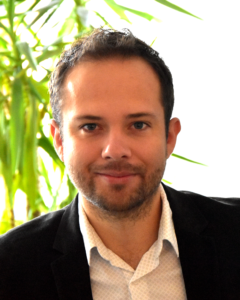
Ronald Fernando Garcia Ruiz
“For his novel studies of exotic nuclei using precision laser spectroscopy measurements, including the first spectroscopy of short-lived radioactive molecules.”
Ronald Fernando Garcia Ruiz studied physics at the Universidad Nacional de Colombia, his master was performed at the Universidad National Autonoma de Mejico, and his Ph.D. degree at KU Leuven, Belgium, on work carried out at CERN-ISOLDE. He received the EPS Best Thesis prize in the period 2015-2017 from the Nuclear Physics Division of the European Physical Society, and the IOP Nuclear Physics Group Early Career Prize 2018, Institute of Physics, UK. Following his PhD, he became a Research Associate at The University of Manchester. After a CERN Research Fellowship at ISOLDE, he became Assistant Professor at Massachusetts Institute of Technology, US. During this period, he received several prizes, among them the APS Stuart Jay Freedman Award, the Department of Energy Early Career Award and the National Academic Award in Science, the Alejandro Angel Escobar Prize, in Colombia.
Ronald’s research activities are focused on the development of precise and sensitive laser spectroscopy techniques for the study of atoms and molecules containing short-lived radioactive nuclei. These systems provide a unique insight into the emergence of nuclear phenomena, the properties of nuclear matter at the limits of existence, and the search for new physics beyond the Standard Model of particle physics.
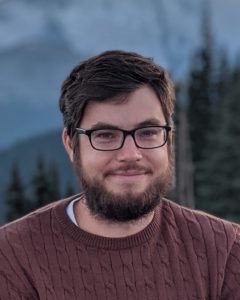
Volodymyr Vovchenko
“For his groundbreaking contributions to the field of high energy nuclear physics, and in particular his work on fluctuations of conserved charges and the properties of strongly interacting matter”.
Volodymyr Vovchenko performed his undergraduate studies and Master’s degree at Taras Shevchenko National University, Kyiv, Ukraine, and moved for his Ph.D. to Goethe University Frankfurt where he obtained a Ph.D. summa cum laude on the quantum van der Waals equation and its QCD applications. He received several awards both in Ukraine and Germany, including the Prize of the Association of Friends and Sponsors of Goethe University for Young Scientists for best dissertation in natural sciences. After a research associate position at Goethe University Frankfurt, he went to the Lawrence Berkeley National Laboratory with a Feodor Lynen Research Fellowship of the Alexander von Humboldt foundation, and now holds a Research Assistant Professorship at the Institute for Nuclear Theory, University of Washington, Seattle, USA. In December 2022 he will join the University of Houston, USA, as an Assistant Professor of Physics.
The IUPAP C12 Commission on Nuclear Physics received 31 nominations for the IUPAP Young Scientist Prize in Nuclear Physics 2019. The deadline for nominations was 1st September 2018. The evaluation was performed by the fourteen members of C12. After a long and critical evaluation, the C12 members decided to award the prize to Or Hen (MIT), Chun Shen (Detroit) and Xiaofei Yang (Peking Univerity, China).
As usual, the award ceremony was held as a special session of the main conference of the field, the International Nuclear Physics Conference (INPC 2019), held in Glasgow, Scotland, on 31 July 2019. As part of the award ceremony, the winners presented an invited talk on their work to the very large audience.
The photo shows the three prize winners together with the Chair of C12, Professor Claes Fahlander (to the right), and the Chair of the organizing committee of INPC2019, Professor David Ireland (to the left).
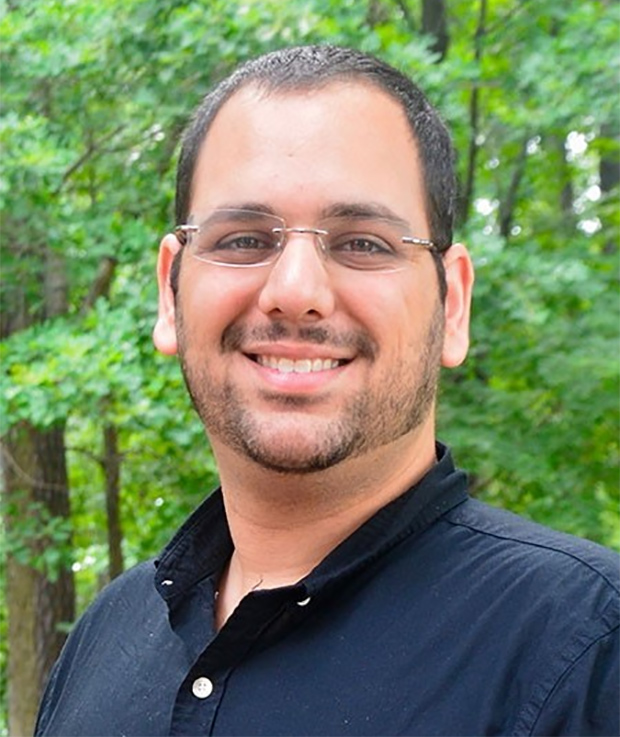
Or Hen
“For extending our knowledge and understanding of short range correlations in nuclei, and for the discovery of a remarkable linear relationship between high-momentum correlations and the deviation of the quark momentum in a heavy nucleus.”
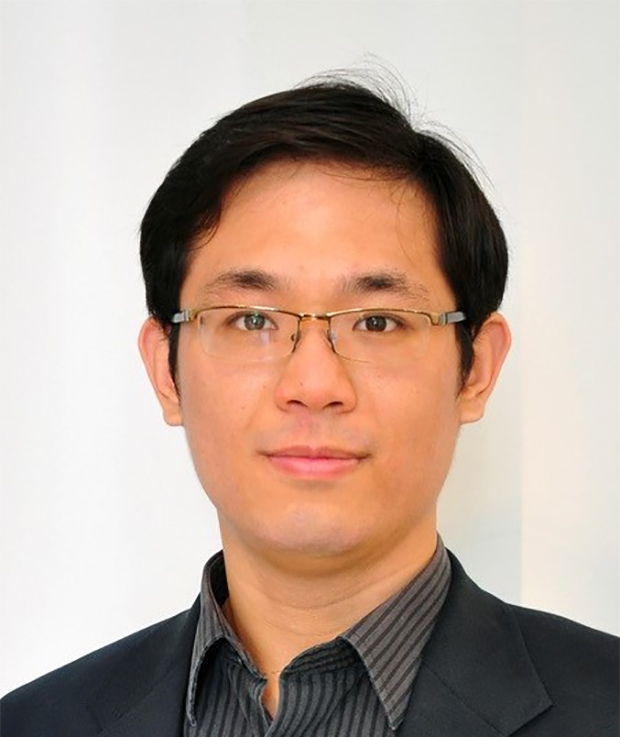
Chun Shen
“For his groundbreaking contributions to the field of high energy nuclear physics, and in particular his development of a comprehensive code package dynamically simulating all stages of relativistic heavy-ion collisions of importance for the investigation of strongly-coupled quark-gluon plasmas.”
Chun Shen obtained his Ph.D. in Physics from Ohio State University in August 2014. He won the Chinese National Award for Outstanding Ph.D. Students Abroad, and his Ph.D. thesis won the 2016 Dissertation Award in Nuclear Physics of the American Physical Society, as well as an honorable mention in the 2015 RHIC Thesis Award competition. After having completed a 2-year postdoctoral fellowship at McGill University in Montreal he turned down an offer from Los Alamos National Laboratory for an Oppenheimer Fellowship to accept a Goldhaber Distinguished Fellowship at Brookhaven National Laboratory, where he became a member of their Nuclear Theory Group. In 2018 Shen started a new position as Assistant Professor at Wayne State University in Detroit. Shen’s area of expertise is in theoretical relativistic heavy-ion physics, with a specific emphasis on the hydrodynamic evolution of transport properties of quark-gluon plasma and its electromagnetic radiation spectrum. Heavy-ion collisions allow to explore the properties of QCD matter under the most extreme conditions of temperature and energy density with wide-ranging implications. Chun’s research provides an important theoretical support for the relativistic heavy-ion programs at the Large Hadron Collider in Switzerland and at the Relativistic Heavy Ion Collider at Brookhaven National Laboratory.
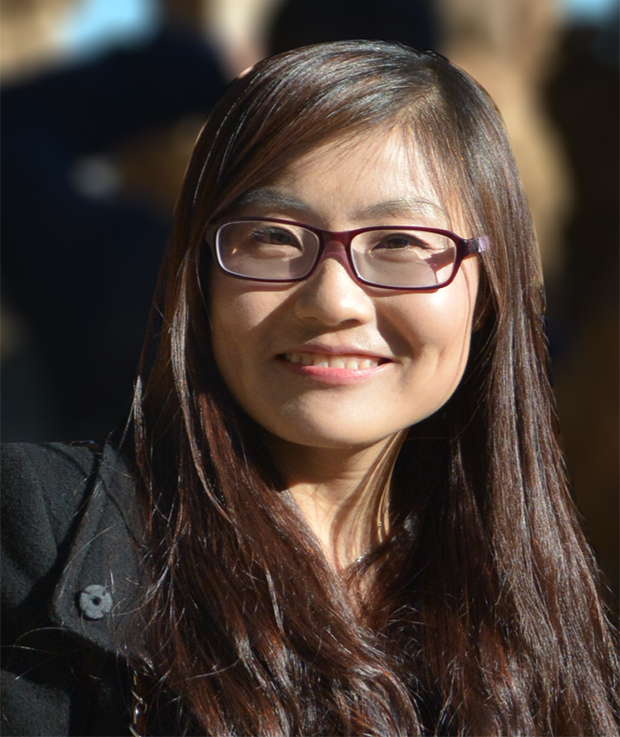
Xiaofei Yang
“For her realization of a unique laser spectroscopy technique to be applied at the PF-type radioactive isotope beam facility and for the substantial contribution to the development and operation of the laser spectroscopy devices at ISOLDE which measure the basic properties of exotic atomic nuclei with high resolution and efficiency.”
Xiaofei Yang received her Ph.D. degree in nuclear physics from Peking University, China, in 2014. Her Ph.D. research work was conducted at RIKEN Nishina Center, Japan, and focused on the development of a novel laser spectroscopy technique OROCHI until the completion of the associated first physics experiment. She worked at RIKEN for 3 years as an International Program Association joint student. She then joined the nuclear moment group at IKS, KU Leuven, Belgium, as a postdoctoral researcher. Her work there was mainly devoted to the laser spectroscopy experiments COLLAPS and CRIS to study the structure of exotic isotopes. She had been a local member of CERN-ISOLDE from 2016 till 2017, supported by Junior Mobility Program of KU Leuven and FWO Grant for a Long-Stay in Europe, Belgium. Since October 2017, she is a faculty member at Peking University, China. Her main research interests are the development of high-precision and high sensitivity laser spectroscopy techniques and the associated structure studies of exotic nuclei.
The Commission for Nuclear Physics (C12) received 21 valid nominations for the IUPAP Young Scientist Prize in Nuclear Physics 2016 by the deadline, 1st December 2015. The evaluation was performed by the C12 members and an external referee for each nominee, specialist of the area but without any links to the nominee. After a long and critical evaluation, the C12 members decided to award the prize to Andreas Ekström (Sweden, Chalmers University), Kara Marie Lynch (UK, CERN-Isolde) and Haozhao Liang (China, Riken).
As usual, the award ceremony was held as a special session of the main conference of the field, the International Nuclear Physics Conference (INPC 2016), held in Adelaide, Australia, on 14 September 2016. As part of the award ceremony, the winners presented an invited talk on their work to the very large audience.

Andreas Ekström
“For his groundbreaking contributions in the optimization of nuclear interactions from chiral effective field theory using advanced physical and mathematical tools in quantifying the theoretical uncertainties. This has allowed accurate ab initio many-body calculations in the areas of nuclear structure and reactions, reproducing for the first time both nuclear binding energies and radii in higher precision and giving realistic saturation properties of nuclear matter.”
Andreas Ekström received his PhD in physics from Lund University, Sweden, in 2010. For his thesis work he studied exotic isotopes using the ISOLDE radioactive ion beam facility at CERN in Geneva. Since then he has shifted his research to theoretical nuclear physics, and has primarily been working on computational methods for describing the low-energy properties of the atomic nucleus starting from a theory for the strong interaction between the nucleons. In particular, he has made groundbreaking contributions in the optimisation of nuclear interactions from chiral effective field theory using advanced physical and mathematical tools in quantifying the theoretical uncertainties.
Between 2010 and 2016 he was a post-doc at Oslo University, Michigan State University, and the University of Tennessee. Since 2016 he is an assistant professor at Chalmers University of Technology, Gothenburg, Sweden.
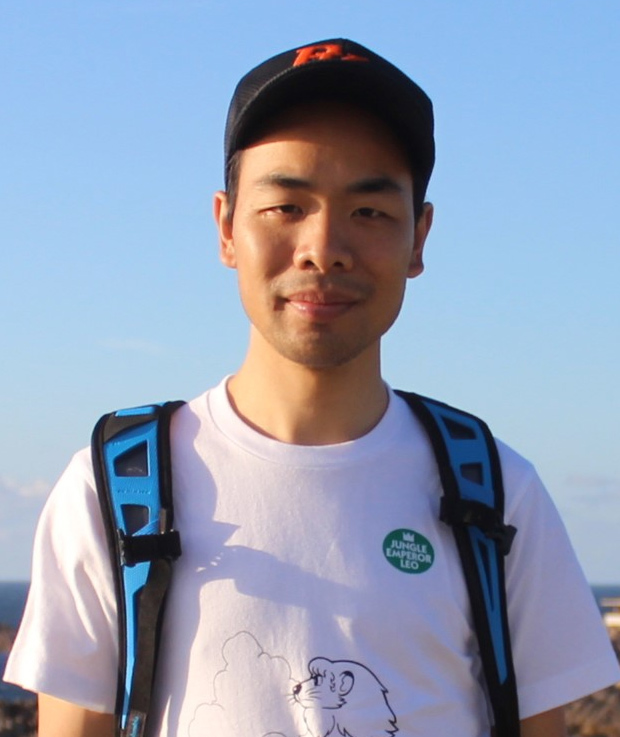
Haozhao Liang
“For his development of a fully self-consistent random phase approximation (RPA) based on the density-dependent relativistic Hartree-Fock (RHF) theory and for establishing a fully self-consistent charge-exchange quasiparticle RPA with both isovector (T=1) and isoscalar (T=0) proton-neutron pairing, based on the RHF-Bogoliubov framework. This result allows the systematic investigation of β-decay half-lives of neutron-rich nuclei and the β+ decays and electron captures of proton-rich nuclei with potential implications towards the remarkable speeding up of the astrophysical r-process flow.”
After his Bachelor in 2005, Dr. Haozhao Liang continued his study in Peking University (PKU), China, by entering a 5-year Ph.D. program in theoretical nuclear physics. From 2006 to 2007, Haozhao visited Institut de Physique Nucléaire Orsay in France several times with the scholarship from the Asia-Europe Link Program. These visits were followed by his successful application in the co-supervision Ph.D. program funded by the French Embassy in China. In 2010, Haozhao obtained his Ph.D. degrees from both PKU and Université Paris-Sud under the co-supervision agreement, and he continued his work in PKU as postdoctoral fellow until 2012. Haozhao then joined in RIKEN Nishina Center as Japan Society for the Promotion of Science (JSPS) postdoctoral fellow, and then Foreign Postdoctoral Researcher of RIKEN. Haozhao was promoted as tenured Research Scientist in RIKEN in April 2015, and he was invited as guest Associate Professor in Graduate School of Science, the University of Tokyo from April 2016.
Dr. Haozhao Liang’s research interests are mainly focusing on nuclear density functional theory (DFT), and the relevant interdisciplinary applications in nuclear physics, nuclear astrophysics, and particle physics. This IUPAP Young Scientist Prize was award for his development of fully self-consistent theories within the relativistic DFT framework. This result allows the systematic investigation of β-decay half-lives of neutron-rich nuclei and the β+ decays and electron captures of proton-rich nuclei with potential implications towards the remarkable speeding up of the astrophysical r-process flow.
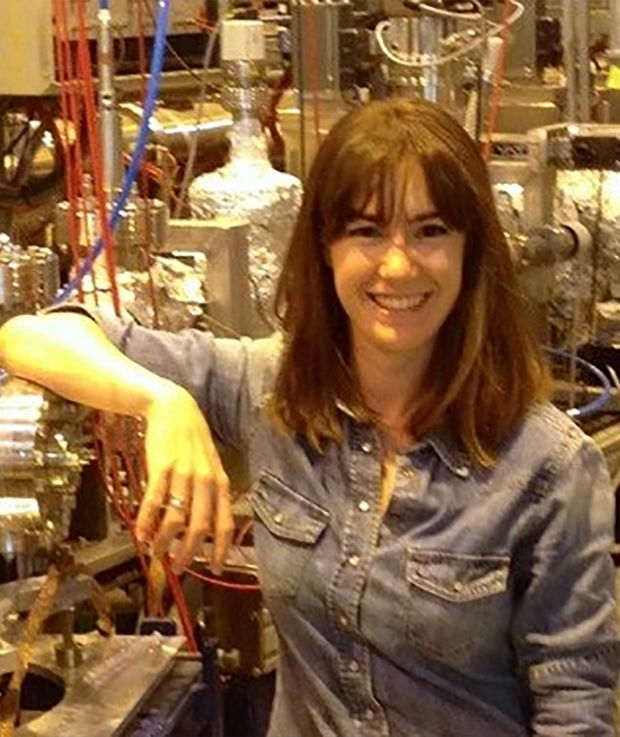
Kara Marie Lynch
“For the development and realization of the collinear resonance ionization (CRIS) method for sensitive laser spectroscopy measurements of exotic atomic nuclei and its possible use to separate short lived isomeric states. This method combines the high resolution of the laser spectroscopy with the high efficiency and selectivity of resonant ionization improving the sensitivity by orders of magnitude. Very pure isomeric beams could be produced by this method allowing the study of their decay properties.”
Kara Marie Lynch graduated from the University of York, UK, in 2010. She obtained her Ph.D. in 2013 from the University of Manchester, UK, on the topic of laser-assisted nuclear decay spectroscopy of neutron-deficient francium isotopes. Following her Ph.D., she was a FWO Marie Curie Pegasus Research Fellow with KU Leuven, Belgium, and is currently a CERN Research Fellow. In 2013, she was awarded the UK’s Institute of Physics Nuclear Physics Group Early Career award. Since 2010, she has been based at the ISOLDE facility, CERN, working on the Collinear Resonance Ionization Spectroscopy (CRIS) experiment, and developing the technique of laser-assisted nuclear decay spectroscopy. This novel setup combines high-resolution laser spectroscopy and nuclear-decay spectroscopy to provide nuclear-structure measurements of short-lived exotic isotopes.
This prize was established by IUPAP in 2005 at the time of the General Assembly in Capetown, South Africa.
The purpose of this prize, which consists of 1,000 €, a medal, and a certificate citing the recipient’s contributions, is:
To recognize and encourage very promising experimental or theoretical research in nuclear physics, including the advancement of a method, a procedure, a technique, or a device that contributes in a significant way to nuclear physics research. Candidates for the prize must have a maximum of eight years of research experience (excluding career interruptions) following the Ph.D. (or equivalent) degree.
Nominations by one or two nominators (and distinct from the nominee) are open to all experimental and theoretical nuclear physicists. The nomination package should contain, other than the nomination letter, at least two additional letters of support, the curriculum vitae of the nominee containing also the list of publications. Three prizes will ordinarily be awarded at the time of the tri-annual International Nuclear Physics Conference.
Nominations are due December 1 of the year preceding the International Nuclear Physics Conference and are valid only until then. It will be extremely helpful to the selection committee to receive at least two additional letters supporting the nomination that detail the expected significance of the contributions of the nominee to nuclear physics. It is also appropriate to submit additional materials such as published articles that underline the expected significance of the nominee’s contribution to nuclear physics. It is important that the selection committee has the specific information that allows it to determine what the nominee has contributed and how this contribution is expected to impact the field.
Nominations for prizes to be awarded at the next International Nuclear Physics Conference, September 11-16, 2016, in Adelaide, Australia, are to be sent by email by December 1, 2015 to the Chair of the IUPAP Commission of Nuclear Physics (C12): Prof. Alinka Lépine-Szily, Institut of Physics, University of São Paulo, email subject “IUPAP prize nomination”.
IUPAP YOUNG SCIENTIST PRIZE IN NUCLEAR PHYSICS 2013
The Young Scientist Prize in Nuclear Physics 2013 was awarded to Rabia Burcu Cakirli, Stefano Gandolfi and Bjorn Peter Schenke.




